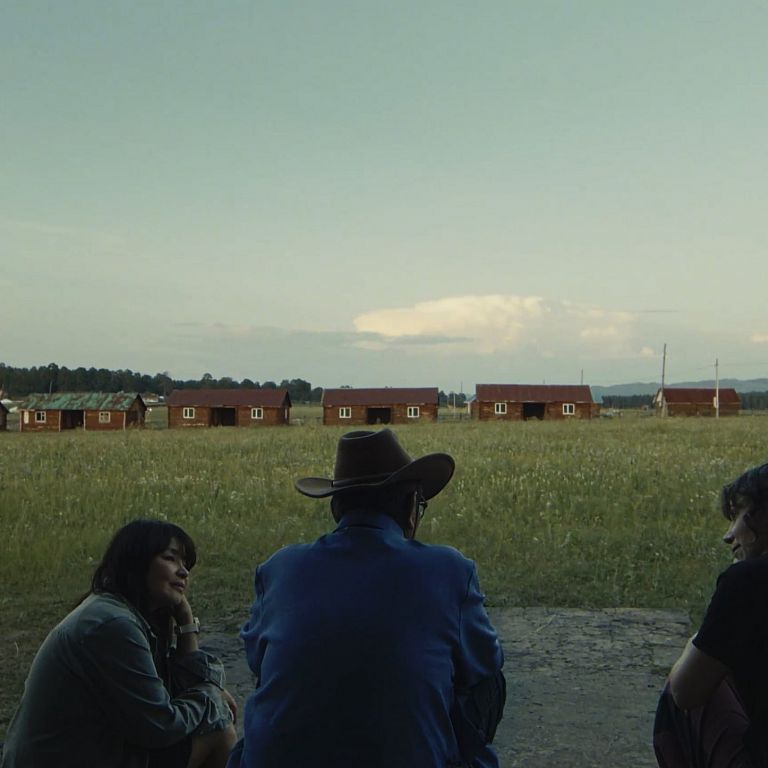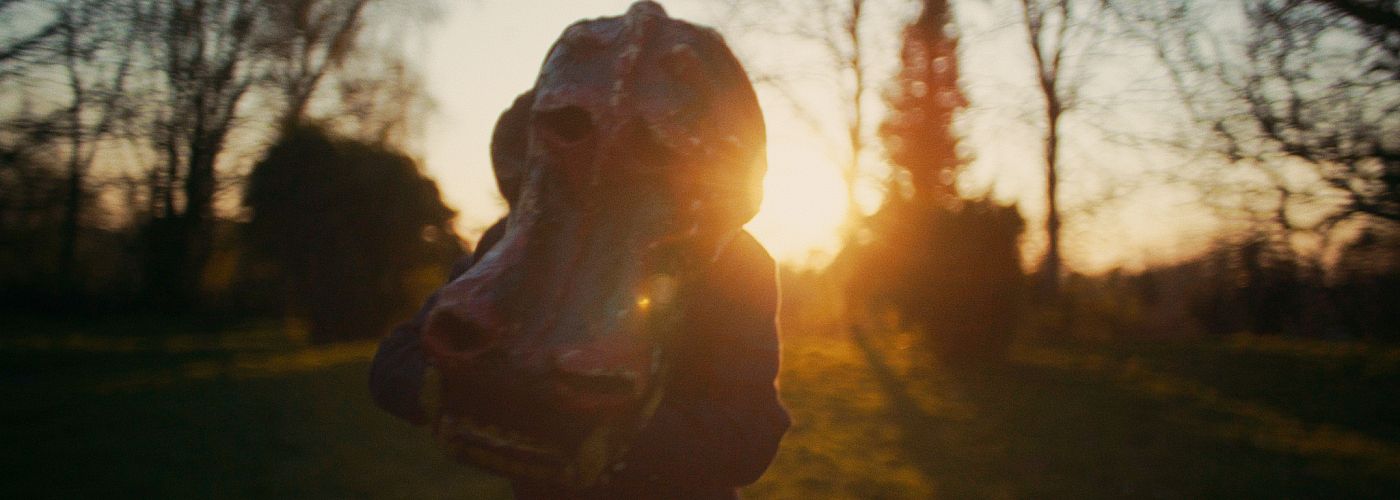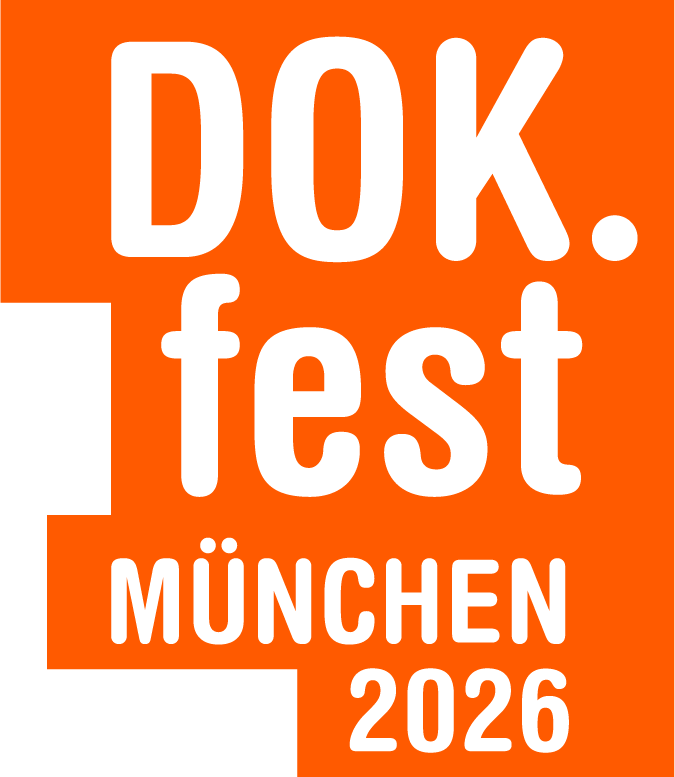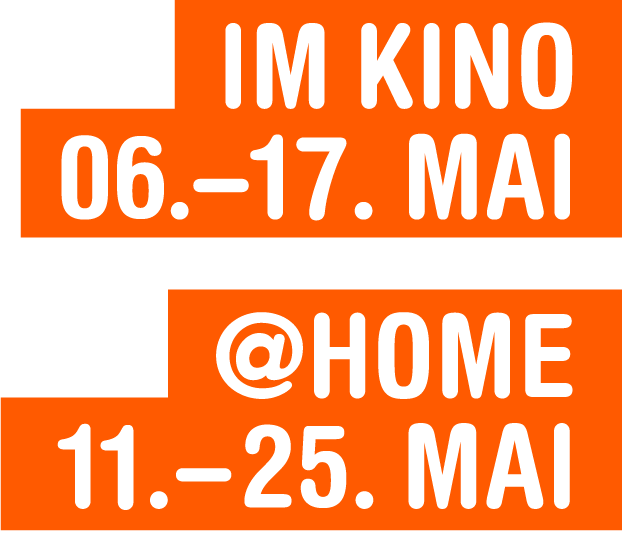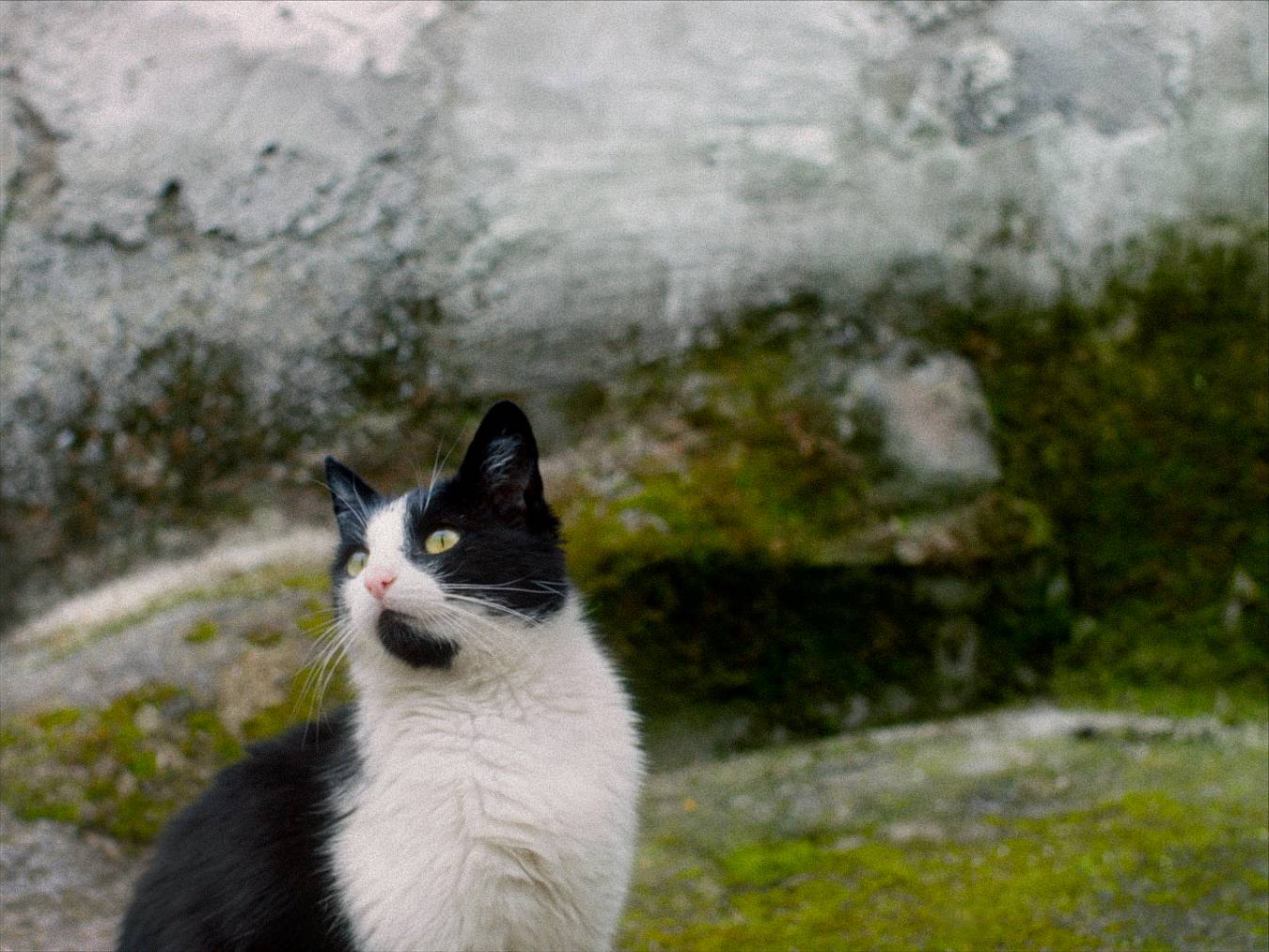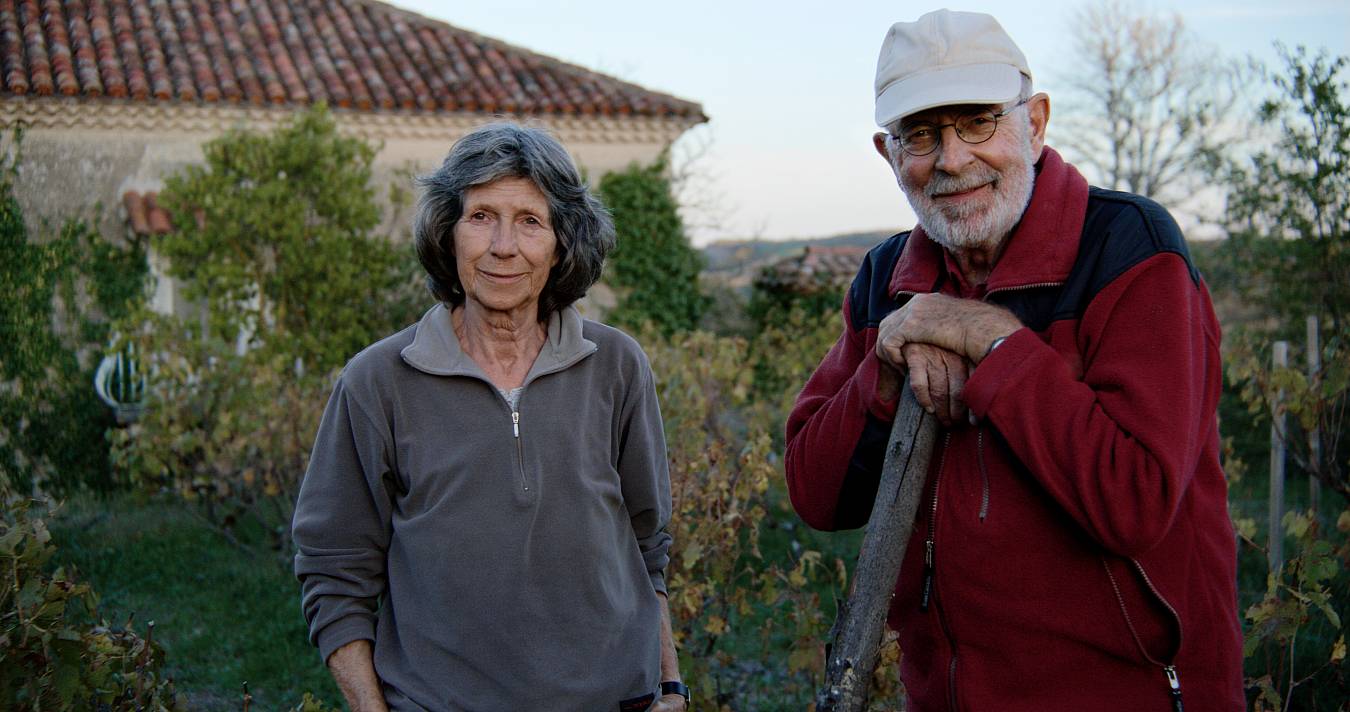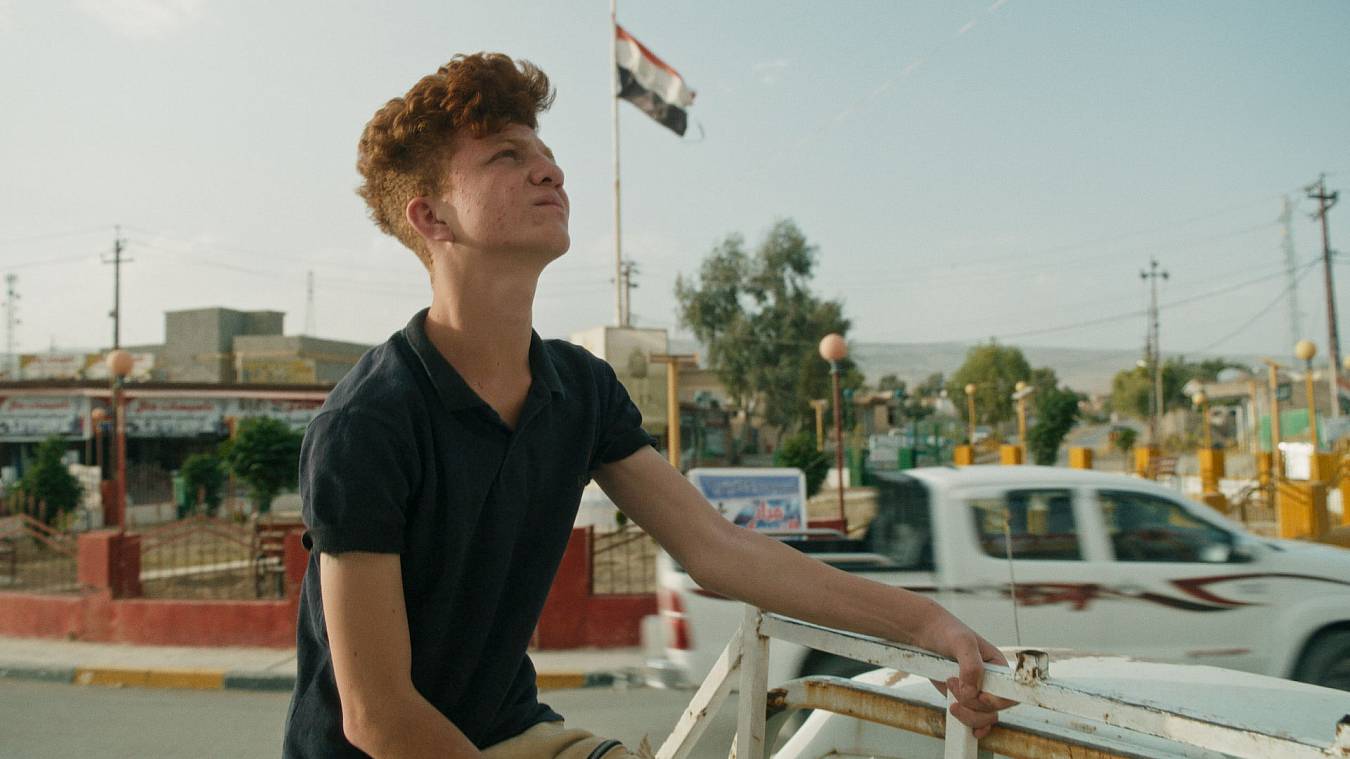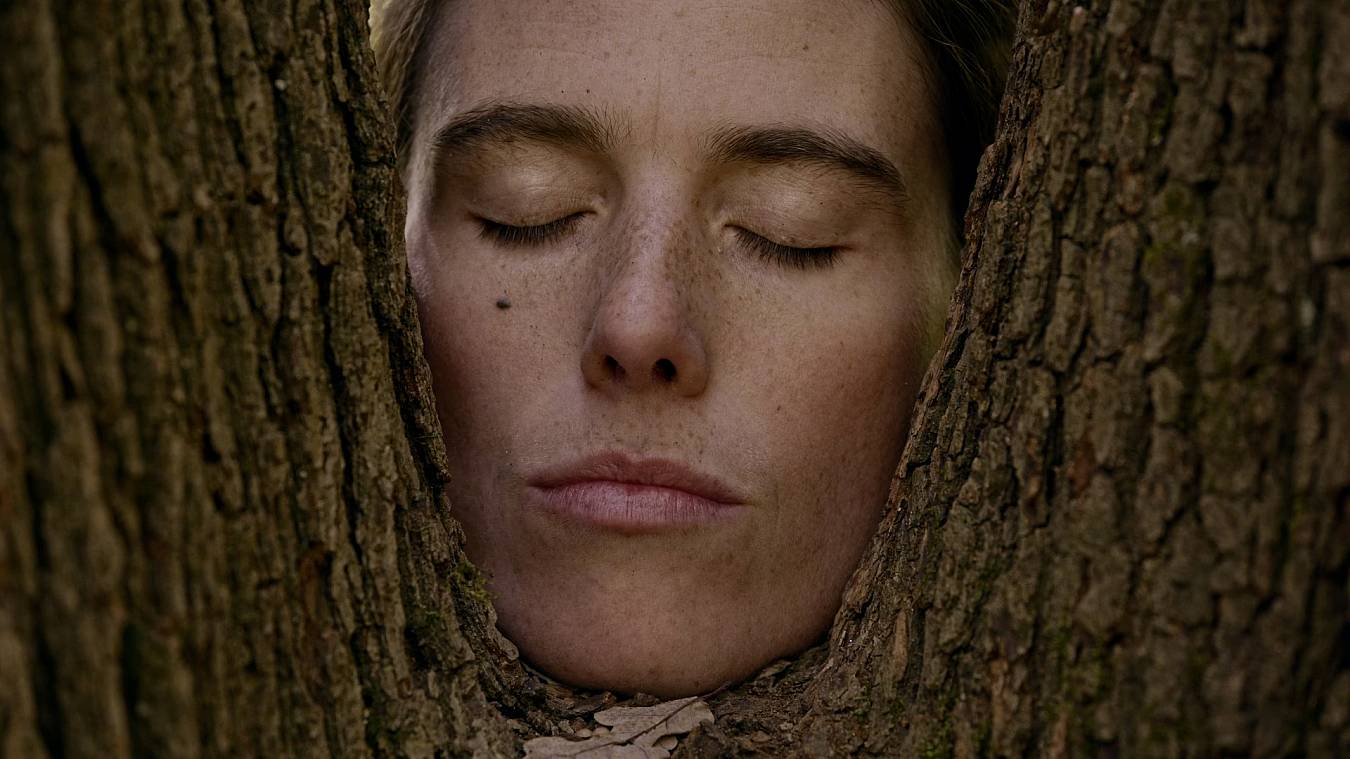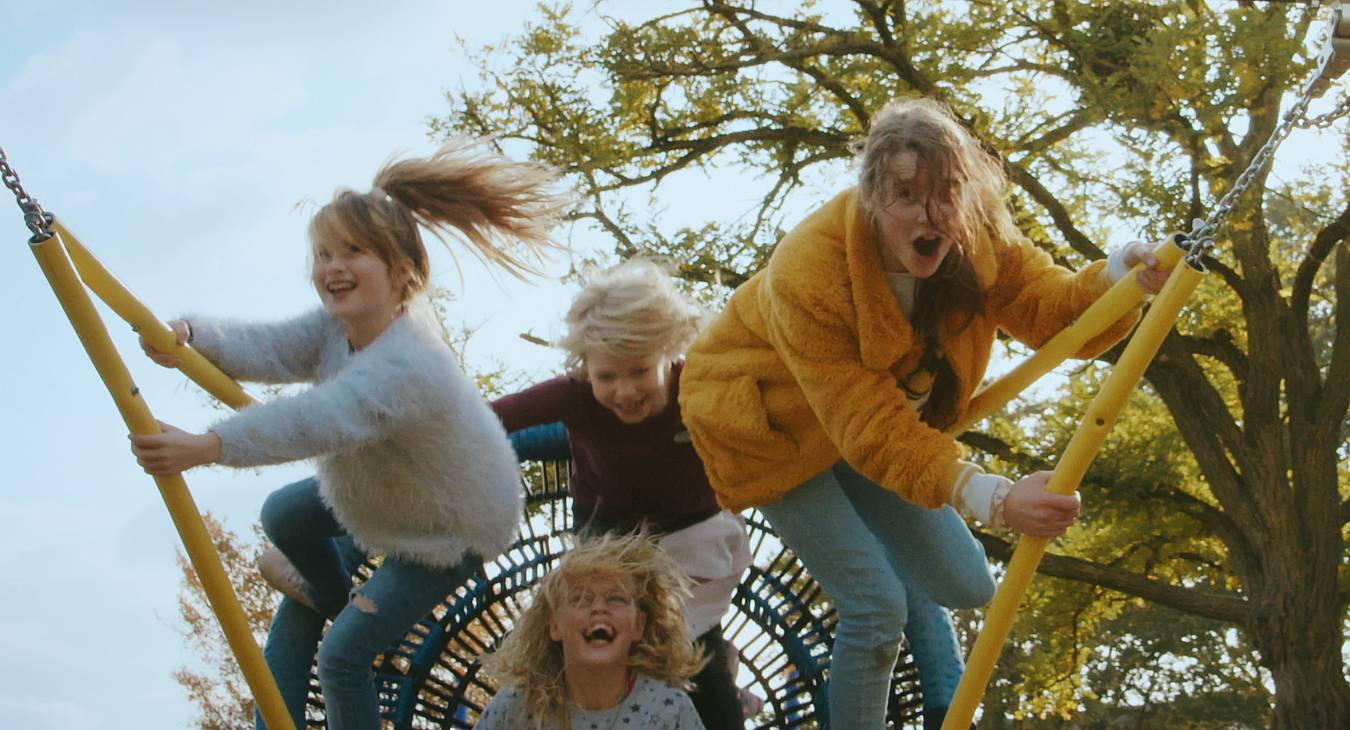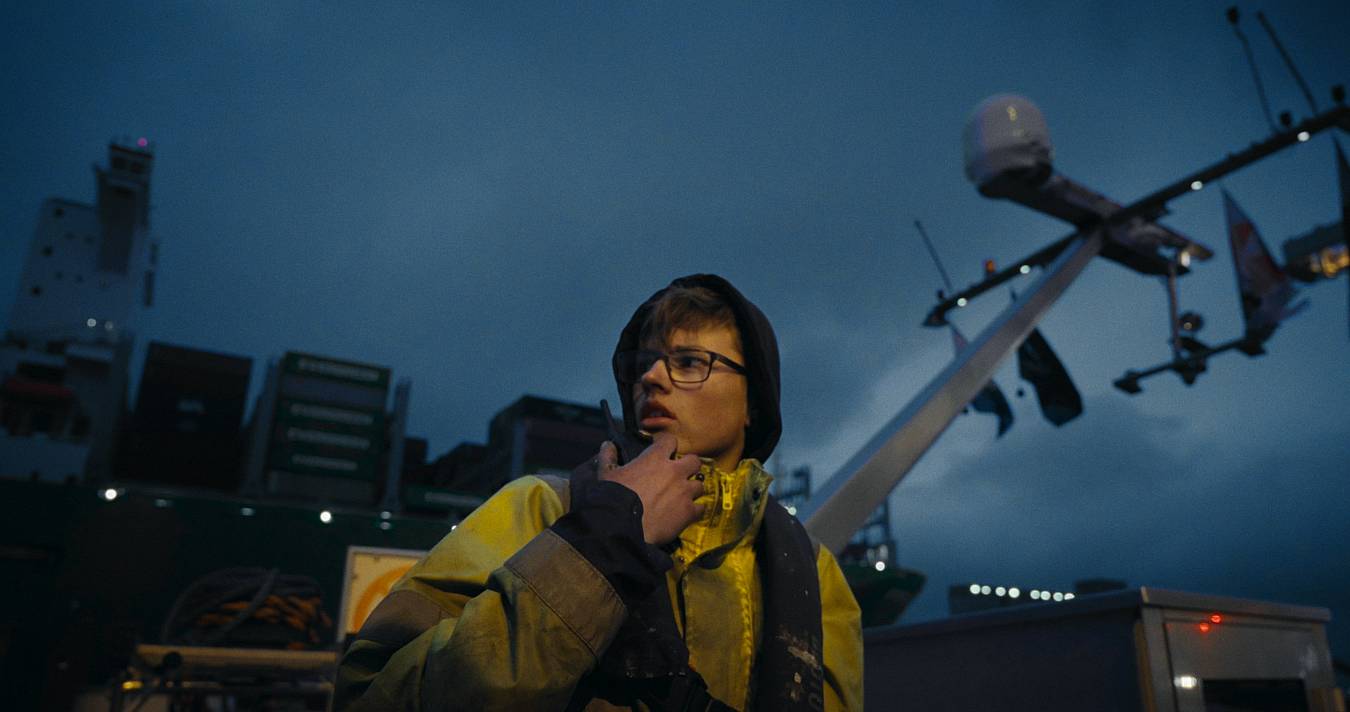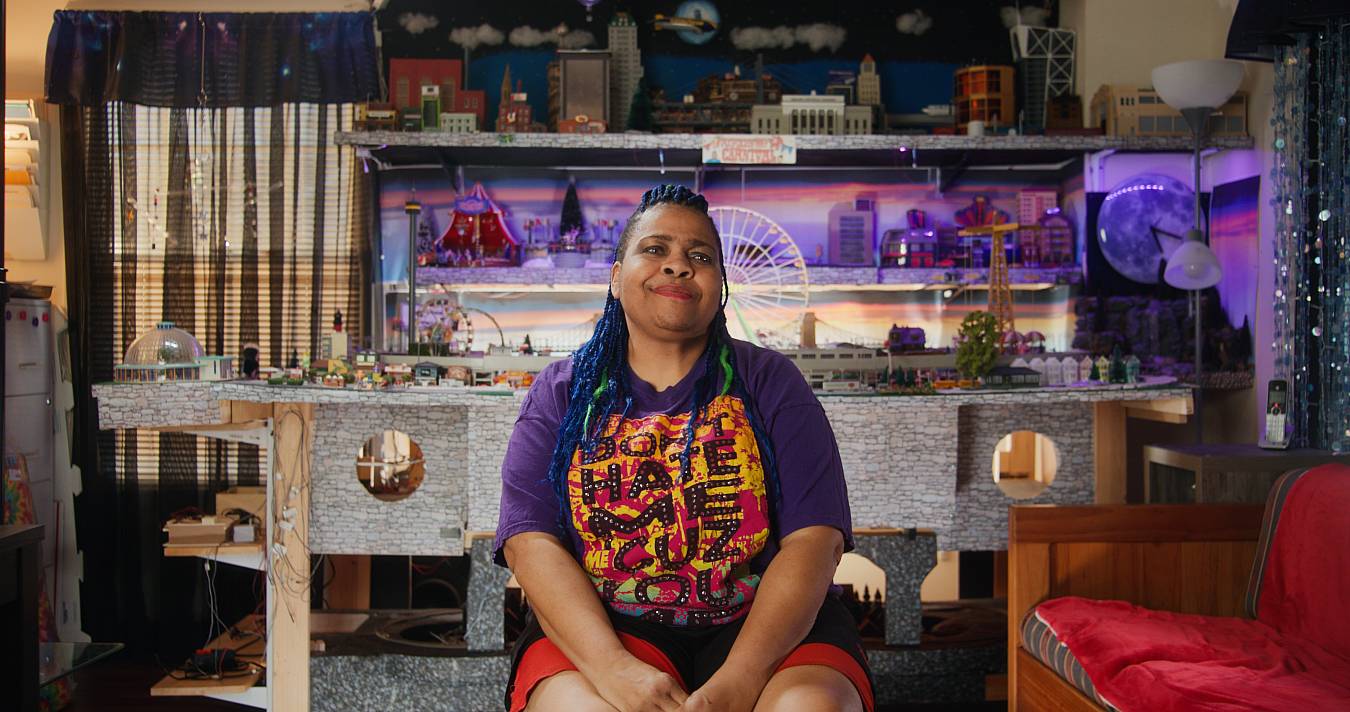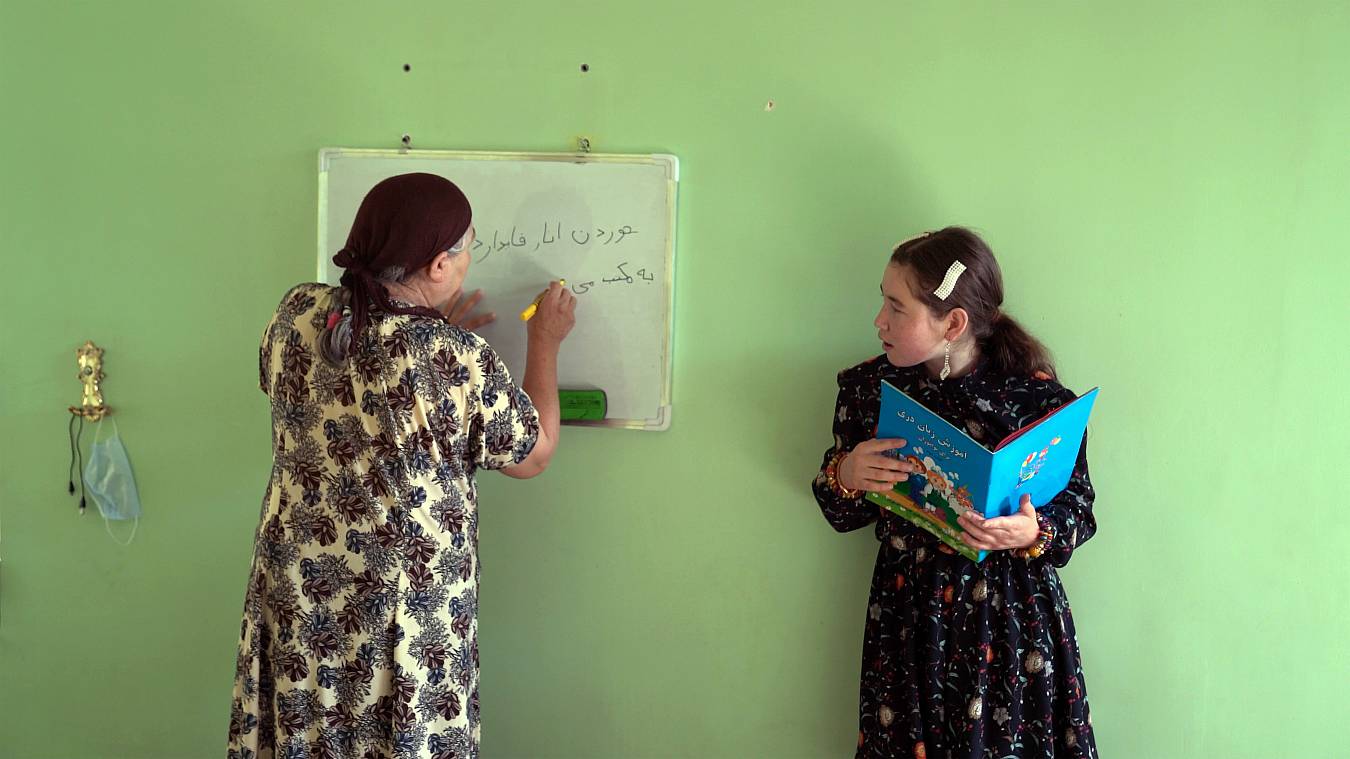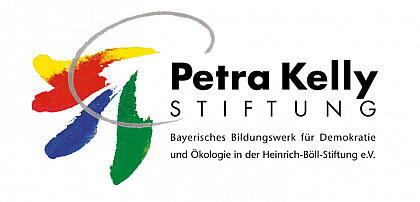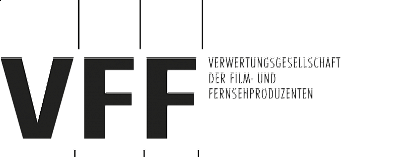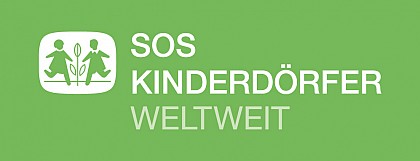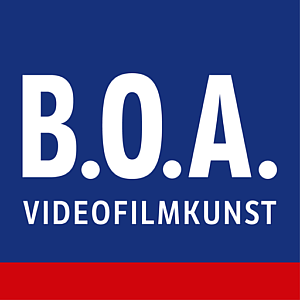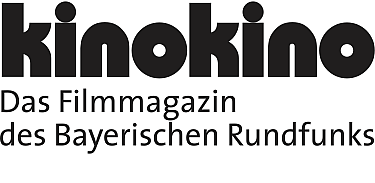Die Preisträger*innen des 40. DOK.fest München
Wir freuen uns, Ihnen die Preisträgerfilme des DOK.fest München 2025 vorzustellen und gratulieren allen Gewinner*innen!
In den drei Wettbewerbsreihen DOK.international Main Competition, DOK.deutsch Wettbewerb und DOK.horizonte Competition – Cinema of Urgency konkurrierten die dafür nominierten Filme beim 40. Internationalen Dokumentarfilmfestival München um die VIKTORIA – die vom Trägerverein des DOK.fest München gestiftete Preisstatue. Darüber hinaus wurden weitere hochkarätige Preise verliehen. Insgesamt wurden Preisgelder in Höhe von 64.200 Euro vergeben.
VIKTORIA DOK.international Main Competition
SILENT OBSERVERS
Regie: Eliza Petkova
Aus der Perspektive von sechs Tieren beobachten wir die Bewohner*innen eines abgelegenen bulgarischen Bergdorfes. Charmant, neugierig und selbstbewusst bewegen sich die Tiere durch den Alltag der Menschen. Dabei spiegelt uns dieser experimentelle und musikgewaltige Film die Frage: Welchen Wert haben Tiere eigentlich für uns? Veronica Loebner
Jurybegründung: „Der Gewinnerfilm befasst sich mit der Ethik und der Ästhetik des Blicks auf die Protagonist*innen von Dokumentarfilmen, seien es Menschen oder andere Wesen. Mit einem augenzwinkernden und klugen Ansatz bringt er Volksmärchen, Aberglauben und die Geschichte eines abgelegenen, alternden und im Verfall begriffenen Dorfes zusammen und hinterfragt, was wir für die Wirklichkeit halten und was wir als fiktive Erzählung wahrnehmen. Wir kommen auf ungewöhnliche und kreative Weise Tieren näher, die Menschen anschauen – und auch uns durch die Leinwand anschauen.
Jedes kleine Detail des Films erscheint akribisch geplant, einschließlich des kühnen experimentellen und beunruhigenden Soundtracks. Wir tauchen ein in epische Bergbilder, in die Einzelheiten von Nachbarschaftsstreitigkeiten und in die Details von Fell, vier Beinen und tiefen, unergründlichen Augen. Der Respekt der Filmemacherin vor den lokalen Traditionen ist offensichtlich. Wir sind beeindruckt von der kooperativen und liebevollen Beziehung, die sie zu ihren Protagonisten hatte, sowie von der Infragestellung menschlicher Vorherrschaft.
Letztendlich lädt uns die vielschichtige Metapher der stummen Beobachter dazu ein, in unbekannte Gebiete vorzudringen und das Leben mit all seinen kreativen Möglichkeiten neu zu betrachten. Sie fordert einen nachhaltigen Einsatz für Toleranz, Empathie und die Offenheit für alternative Vorstellungswelten, anstatt auf vertraute visuelle Codes zurückzugreifen oder das, was ungeklärt ist, auszusperren.
Herzlichen Glückwunsch an die Gewinnerin des VIKTORIA DOK.international Hauptwettbewerbs!“
Lobende Erwähnung: THE INVISIBLE CONTRACT
Regie: Luciana Kaplan
Frauen, die in Mexiko-Stadt im Reinigungssektor arbeiten. Ein sensibles Gesellschaftsporträt.
Jurybegründung: „Eine besondere Erwähnung verdient THE INVISIBLE CONTRACT für sein einfühlsames Interesse an einigen der schwächsten und von Ungerechtigkeit betroffenen Arbeiter*innen und für seine Mischung aus formaler Schönheit und der Forderung nach sozialer Gerechtigkeit. Der Film durchbricht das alltägliche Schweigen, das diesen Arbeiter*innen auferlegt wird, denen es oft verwehrt bleibt, für ihre Rechte einzutreten. Er schafft so einen Raum, in dem der Dialog der Figuren mit der Kamera zu einem Akt des Widerstands wird. Auf diese Weise fördert er eine Kultur der Sichtbarkeit und der Würde und zwingt die Zuschauer*innen, über die dringende Notwendigkeit eines strukturellen Wandels und eines größeren Respekts für marginalisierte Arbeit nachzudenken.“
Jury: Leonard Cortana (Manager für Inklusionsprogramme und strategische Partnerschaften bei EURODOC und Doktorand in Filmwissenschaft an der NYU), Aleksandra Derewienko (Leiterin des Vertriebs, CAT&Docs), Charlie Phillips (Produzent, I Am Charlie Ltd und Head of Stories, Lyfta)
Gestiftet vom Bayerischen Rundfunk, dotiert mit 10.000 Euro. Nominiert waren Filme, die ein breites inhaltliches und formales Spektrum aufweisen und sich durch ihre hohe künstlerische Qualität auszeichnen.
VIKTORIA DOK.deutsch Wettbewerb
WIR ERBEN
Regie: Simon Baumann
Die Eltern sind Schweizer Bio-Pionier*innen der ersten Stunde, ausgewandert nach Frankreich auf einen Einödhof. Nun sind sie alt und wollen das Anwesen an ihren Sohn vererben. Der findet Erben moralisch fragwürdig und filmt den Entscheidungsprozess. Meisterhaft erzählt, witzig und tiefgehend zugleich, mit diskussionsstarken Persönlichkeiten. Ysabel Fantou
Jurybegründung: „WIR ERBEN konfrontiert uns mit der Frage: Wie umgehen mit dem Erbe, das einem die eigenen Eltern eines Tages überlassen werden? Auf sehr persönliche Weise nutzt Regisseur Simon Baumann die Diskussion in seiner eigenen Familie um ein Gut in Frankreich, das die Eltern an ihn und seinen Bruder übergeben wollen, um Themen aufzumachen, die uns alle betreffen, mit denen wir uns alle identifizieren können – auch solche, die nicht aus reichen Familien kommen. Erben heißt: Auseinandersetzung mit dem Tod, mit Erinnerungen, mit Verantwortung und Pflichten.
Offen diskutieren die Protagonist*innen diese Themen und die Perspektive derjenigen, die vererben werden, rückt in den Fokus. Was bleibt von einem Leben? Was möchte man hinterlassen? In einer stimmigen Dramaturgie, bei der Baumann auf etliche Archivmaterialien der Eltern zurückgreifen kann, zeigt er nebenbei die Unterschiede zwischen den Generationen auf und zeichnet nach, wie sich Leben und Lebensentwürfe seit der Baby-Boomer Generation verändert haben. Während seine Eltern ganz selbstverständlich Häuser bauten, kann sich das heute kaum jemand mehr leisten.
Es sei denn, man erbt. So macht dieser Film auf kluge Weise auf Ungerechtigkeiten aufmerksam – und zeigt auch die Widersprüchlichkeiten der Menschen, die politisch gegen diese Ungerechtigkeiten kämpfen, im persönlichen Fall aber doch erst einmal an sich selbst denken. Doch er tut dies alles mit etwas, das der ganzen Familie innewohnt: einem unheimlich großen Sinn für feinen Humor.“
Jury: Hamado Dipama (Referent der Arbeitsgemeinschaft der Ausländer-, Migranten- und Integrationsbeiräte Bayerns (AGABY) für Antirassismus- und Antidiskriminierungsarbeit in Bayern), Katja Kraft (Kulturredakteurin bei Münchner Merkur und tz), Jaie Laplante (Künstlerischer Leiter von DOC NYC)
Dotiert mit 7.500 Euro. Nominiert werden Filme, die sich mit Menschen und Themen im deutschsprachigen Raum auseinandersetzen. Preisstifter ist Sky.
VIKTORIA DOK.horizonte Competition – Cinema of Urgency
RASHID, L’ENFANT DE SINJAR
Regie: Jasna Krajinovic
Als Kind überlebte Rashid die IS-Gefangenschaft im Irak, als Teenager steht er nun vor der Frage: Bleiben und für eine Zukunft in Sindschar kämpfen oder Heimat und Freund*innen zurücklassen? Inmitten von Unsicherheit und neuer Bedrohung versucht er, seinen Weg zu finden. Ein Film über Familie, Freundschaft und der Sehnsucht nach einem besseren Leben. Helga-Mari Steininger
Jurybegründung: „Die Anfangsszene von RASHID, L’ENFANT DE SINJAR ist eine perfekt gewählte, aber zugleich erschreckende Exposition: Aus einem offenen Auto überblickt die Kamera die verwüsteten Straßen von Sinjar. Dann lernen wir Rashid selbst kennen – einen rothaarigen, leicht pickeligen Teenager, der, wie seine Großmutter später verrät, auffallend anders aussieht als die anderen Jesid*innen. Dieser auffällige junge Mann ist der Namensgeber des Films und die zentrale Figur. Rashid und seine jesidische Familie haben den Völkermord durch den sogenannten IS überlebt, dadurch jedoch ein schweres Trauma davongetragen.
Während seine Familie nach Sicherheit und Stabilität sucht, verfolgt die Filmemacherin Jasna Krajinovic Rashids Versuche, sein Leben in der zerstörten Stadt wieder aufzubauen. Der Film vermittelt auf subtile Weise eine allgegenwärtige Gefahr, und in einem erschütternden Moment werden wir Zeug*innen davon, wie das Trauma der Vergangenheit in der Gegenwart weiterwirkt.
Das Einfühlungsvermögen den Protagonist*innen gegenüber ist bemerkenswert, wobei stets ihre Grenzen gewahrt werden. In schwierigen Szenen bleibt die Kamera nah dran, ohne sich aufzudrängen. Der Film stützt sich auf die authentischen Erfahrungen seiner Protagonist*innen und verzichtet darauf, durch einen übermäßigen Einsatz von Musik zu emotionalisieren. In vielen Szenen werden gegensätzliche Elemente gekonnt miteinander kombiniert, was die Normalisierung der Bedrohungslage für die jungen Menschen vor Ort besonders verdeutlicht: Alltagssituationen von Teenager*innen spielen sich inmitten einer Kulisse der Zerstörung ab.
Im weiteren Verlauf der Geschichte müssen sich die Protagonist*innen mit der schwierigen Frage auseinandersetzen, ob sie bleiben oder gehen werden. Einige der Familienmitglieder entscheiden sich fürs Bleiben, andere fürs Weggehen, wobei beide Entscheidungen sowohl mit Hoffnung als auch Unsicherheit verbunden sind. Die Zuschauer*innen fragen sich, welche Zukunft diese resilienten Menschen wohl erwarten mag.
Mit seiner bemerkenswerten Kameraführung und der nuancierten Erzählweise spricht dieser großartige und zutiefst bewegende Film ein breites Publikum an und macht gleichzeitig auf die Notlage einer verfolgten Minderheit aufmerksam. Er hinterlässt einen bleibenden Eindruck bei den Zuschauer*innen und schafft Raum, um sich mit der Situation von unterdrückten und bedrohten Gruppen weltweit zu beschäftigen.“
Jury: Florian Schewe (Produzent, Film Five GmbH), Susanne Mertens (Redakteurin, ZDF/ARTE Aktuelles), Julian Etienne (Referent des Climate Story Fund und Filmbeauftragter)
Gestiftet von der Petra-Kelly Stiftung, dotiert mit 5.000 Euro. Nominiert waren Filme, die ihr Augenmerk auf Länder mit instabilen Strukturen richten.
megaherz Student Award
WOMAN/MOTHER
Regie: Klara Harden
Mara und Klara verbindet eine langjährige Freundschaft. Als sie die erste Tanzperformance planen, seit Mara Mutter ist, wird sie wieder schwanger. Klara lotet mit ihr aus, was möglich ist. Doch die Geburt des zweiten Kindes lässt Mara kaum noch kreativen Raum. Intim und ehrlich, ein berührender Film über den Versuch, sich als Mutter nicht zu verlieren. Ysabel Fantou
Jurybegründung: „Die Filmemacherin geht ein Wagnis ein: Sie sieht hin, wo wir als Gesellschaft nicht gerne hinsehen und legt zusammen mit ihrer langjährigen Freundin und Tanzpädagogin Mara die Ansprüche an und die Widersprüche von Mutterschaft offen. In einer Gesellschaft, die Mütter und ihre Erfahrungen oft unsichtbar macht, aber gleichzeitig mit hohen Erwartungen belegt, spricht der Film ehrlich über Schuldgefühle, darüber, sich fehlerhaft und ungenügend zu fühlen, und die Mutterrolle nicht zu jedem Zeitpunkt zu lieben. Die Regisseurin bleibt präsent, wenn die elterliche Pflicht ihrer Freundin zur Überforderung wird. Sie zeigt die Isolation, die sich selbst innerhalb einer funktionierenden Beziehung ausbreitet, und setzt dem eine starke Frauenfreundschaft entgegen. Dabei nimmt sie ihre Rolle als Autorin kritisch in den Blick und hinterfragt, inwiefern sie selbst die kapitalistisch-patriarchalen Erwartungen an funktionierende Mütter auf ihre Freundin Mara projiziert.
Der formale Ansatz, welcher Tanzperformances mit feinen Beobachtungen des Familienalltags kombiniert, geht ehrlich mit seiner Unperfektheit um. Statt makelloser Bilder steht der kreative Schaffensprozess der beiden Freundinnen im Fokus – und die Frage, wie man als Mutter bei sich bleiben kann, wenn der eigene Körper von anderen gebraucht, bewohnt und vereinnahmt wird. Der Film zeigt nicht die Antwort, kein uneingeschränktes Happy End, aber er ermutigt uns, hinzusehen. Wir gratulieren Klara Harden zum Gewinn des Student Awards 2025 mit ihrem Film woman/mOther.“
Lobende Erwähnung: THE DISAPPEARANCE OF OUR MOMENTS
Regie: Ahmad Siyar Noorza
Eine Familie gefangen im Niemandsland zwischen zwei Grenzen. Ein Film wie ein Mythos.
Jurybegründung: „Außerdem möchten wir den tief berührenden Film THE DISAPPEARANCE OF OUR MOMENTS von Ahmad Siyar Noorzad mit einer lobenden Erwähnung würdigen. Der Film begegnet allen Familienmitgliedern auf Augenhöhe und mit größter Empathie, während er feinfühlig beobachtet, was es bedeutet, zu flüchten und zu stranden.“
Jury: Annina Lehmann (Universität Westminster), Patrick Wira (Zürcher Hochschule der Künste), Lou von Sohlern (Hochschule für Fernsehen und Film München)
Gestiftet von der Filmproduktionsgesellschaft megaherz, dotiert mit 3.000 Euro, für den Gewinnerfilm der Reihe Student Award.
VFF Dokumentarfilm-Produktionspreis
DAS FAST NORMALE LEBEN
Produzent*innen: Ulla Lehmann und Andrea Roggon (AMA FILM)
Regie: Stefan Sick
Leni, Eleyna, Lena und Lisann leben in einer Wohngruppe der Kinder- und Jugendhilfe. Sie sind laut und unberechenbar und treiben ihre zugewandten Betreuer*innen oft zur Verzweiflung. Der warmherzige und behutsam erzählte Dokumentarfilm beobachtet den Alltag der vier jungen Mädchen über zwei Jahre und führt uns vor Augen, wie wichtig Halt und Geborgenheit sind. Ina Borrmann
Jurybegründung: „Wenn in der Finanzbranche eine Filmproduktion schon per se als Wagnis gilt, dann ist ein Kino-Dokumentarfilm ein Hochrisikogeschäft. Aber es gibt noch eine Steigerung: die Produktion einer Langzeitdokumentation.
Wie viele Drehtage wird man brauchen? Lässt sich das Projekt mit dem verfügbaren Budget zu Ende führen? Bleiben die Protagonist*innen dabei oder steigen sie zwischendurch aus? Und werden sie mit dem fertigen Film einverstanden sein?
Andrea Roggon und Ulla Lehmann haben sich auf diese Reise mit ungewissem Ausgang eingelassen, beträchtliche Eigenmittel von Ama Film investiert und es Regisseur Stefan Sick ermöglicht, vier treffsicher ausgewählte Mädchen aus schwierigem familiärem Umfeld zwei Jahre lang in einer Jugendhilfe-Einrichtung zu begleiten. Im Alltag ihrer Wohngruppe, in Krisen- und Konfliktsituationen, in Hoffnung und Enttäuschung ist Sicks Kamera einfühlsam, dicht, aber immer respektvoll, lässt uns mitfühlen und mit hoffen, liest in den jungen Gesichtern und verdichtet DAS FAST NORMALE LEBEN der Mädchen zu einem emotional berührenden Stück dokumentarischen Kinos.
Dieser Arbeit den Weg zu ebnen und nicht nur die Protagonistinnen, sondern auch die Eltern und Erzieherinnen über zwei Jahre hinweg mitzunehmen, Vertrauen aufzubauen, sie zu schützen und letztlich davon zu überzeugen, das Publikum auch an ihren ganz privaten Momenten teilhaben zu lassen, erfordert den vollen Einsatz aller Beteiligten und kann nur gelingen, wenn Regie und Produktion harmonieren. Diese organisatorische Herausforderung hat Ama-Film beeindruckend bewältigt: Wir gratulieren zum VFF-Dokumentarfilm-Produktionspreis 2025!“
Jury: Nicole Leykauf (Produzentin und Geschäftsführerin, Leykauf Film), Thomas Frickel (Autor, Regisseur und Produzent), Oliver Stoltz (Produzent, Dreamer Joint Venture, Preisträger 2024)
Gestiftet wird der Preis von der VFF Verwertungsgesellschaft der Film und Fernsehproduzenten mbH, er ist mit 7.500 Euro dotiert und einmalig in Deutschland.
Deutscher Dokumentarfilm-Musikpreis
VRACHT
Komposition: Mirjam Skal
Regie: Max Carlo Kohal
Rudmer ist Lehrling auf einem Binnenschiffer. Er trotzt dem harten Leben an Bord, denn er verfolgt einen Traum: als Kapitän auf der Brücke stehen. VRACHT ist keine soziologische Studie, sondern ein wundersam kurzweiliger Film: Spielerische Szenen, eine raffinierte Montage und monumentale Bilder. Ausgezeichnet mit dem Deutschen Dokumentarfilm Musikpreis! Jan Sebening
Jurybegründung: "Was fühlt ein Frachtcontainer? Gemächlich, doch unbeirrbar auf Kurs fährt das Containerschiff „Panerai“ den Rhein rauf und runter. An- und Ablegemanöver, Verladelogistik und Instandhaltungsarbeiten prägen den Arbeitsalltag an Bord. Die hochsensible, reduzierte Filmmusik von Mirjam Skal führt uns tiefer in diese raue und fremde Welt, als die Bilder allein es könnten. Sie definiert Timing und Atmosphäre des Films. Musik und Geräusche können uns Dinge spüren lassen, die für das Auge verborgen bleiben. Wir hören Klänge, die von Stahl, Wind und Wetter inspiriert sind und die Frachtcontainer zum Leben erwecken. Das Zusammenspiel von visueller und akustischer Ebene ist in VRACHT perfekt gelungen. So erleben wir einen immersiven Augen- und Ohrenfilm, in dem die individuellen künstlerischen Stimmen von Regie, Kamera, Schnitt und Musik zu einer Harmonie geworden sind. Nun können wir die Container besser verstehen."
Jury: Atena Eshtiaghi (Musikerin und Komponistin, Preisträgerin 2024), Sebastian Höglinger (Kurator, Distribution/Text, Ehemalige Leitung Diagonale), Ann-Kathrin Mittelstraß (Musikjournalistin, BR)
Der Preis ist mit 5.000 Euro dotiert. Ausgezeichnet wird der*die Komponist*in. Der Deutsche Dokumentarfilm-Musikpreis wird von der Versicherungskammer Kulturstiftung gestiftet.
DOK.edit Award – presented by Adobe
A SUDDEN GLIMPSE TO DEEPER THINGS
Schnitt: Timo Langer
Regie: Mark Cousins
1949 bestieg die britische Malerin Wilhelmina Barns-Graham den Grindelwaldgletscher in der Schweiz und erlebte eine Offenbarung, die ihr Gehirn neu verdrahtete und ihre Kunst für immer veränderte. Mark Cousins taucht ein in ihr Leben und Werk und erkundet die Geheimnisse ihrer Kreativität – ein besonderes und faszinierendes Künstlerinnenporträt. Moni Haas
Jurybegründung: „Von Anfang an macht uns die Montage von Bild und Ton klar: Hier beginnt eine Reise und wir sollen bitte genau hinschauen und hinhören. Leise, mit Humor und sehr durchdringend erzählt Timo Langer in dem Film A SUDDEN GLIMPSE TO DEEPER THINGS von der Arbeit der schottischen Künstlerin Wilhelmina Barns-Graham, genannt Willi.
Die mutige Zusammensetzung des heterogenen Ausgangsmaterials gewährt Freiraum für die Entdeckung ihrer Kunst und führt einfühlsam durch Willis Lebensgeschichte. Dabei entsteht ein eigener, fesselnder Erzählrhythmus, der sich von dem Werk der Künstlerin inspirieren lässt. Es ist faszinierend, wie der Film es schafft, dass man als Zuschauer*in das Gefühl bekommt, bei der Entstehung der Werke dabei zu sein und sie durch die Augen der Künstlerin sieht.
Besonders beeindruckend ist, wie der Editor Platz für Bilder schafft, die über das Wort hinaus gehen und zum intensiven Betrachten einladen. Der Umgang mit Farben und Formen, mathematischen Formeln und spirituellen Einflüssen verleiht dem Film eine einzigartige und tiefgründige Ästhetik. Die Leidenschaft für das Malen und die Auseinandersetzung mit Leonardo da Vinci spiegeln sich in der Montage wider. Diese nimmt sich Zeit für Empfindungen, zeigt Mut zur Sperrigkeit und präsentiert ein Werk für Augen und Ohren, das präzise aufgebaut und durchdacht ist. Für diese Leistung gratulieren wir Timo Langer zum DOK.edit Award – presented by Adobe!“
Jury: Gisela Castronari-Jaensch (Dozentin für Schnitt, Filmakademie Baden-Württemberg), Kaya Inan (Editor), Yana Höhnerbach (Editorin)
Der Preis wurde in Kooperation mit Adobe entwickelt, die auch Preisstifter der mit 5.000 Euro dotierten Auszeichnung sind. Mit dem Preis soll die Postproduktion von Dokumentarfilmen beleuchtet und die Arbeit der Editor*innen gewürdigt werden. Nominiert sind Filme mit herausragender Montageleistung. Der Preis wird reihenübergreifend verliehen.
all inclusive Award – Preis für inklusive Dokumentarfilmproduktionen
PATRICE: THE MOVIE
Regisseur: Ted Passon
Patrice und Gary möchten heiraten. Doch als Ehepaar mit Behinderungen drohen ihnen die staatlichen Leistungen gestrichen zu werden. Unterstützt von treuen Freund*innen stellen sie sich dem unfairen Gesetz und anderen Herausforderungen. Ein lebensbejahender Film über Liebe, Gleichstellung und das Aufbrechen von Barrieren in unserer Gesellschaft. Kathi Seemann
Aus der Jurybegründung: „Es war uns als Jury ein großes Anliegen, einen Film zu prämieren, der uns im Konsens am meisten filmisch überzeugt und der zugleich hinter den Kulissen zeigt, dass er maßgeblich von Expert*innen der dargestellten Lebenswelt, vor und hinter der Kamera, geschaffen wurde. In der heutigen Zeit, in der politische Botschaften eine bedeutende Rolle spielen, ist es besonders wichtig, einen Film zu würdigen, der sowohl empowernd als auch gesellschaftskritisch ist. "Inklusion ist eine zarte Pflanze". PATRICE: THE MOVIE behandelt dieses Thema mit der Feinfühligkeit eines zarten Bleistifts, der keine weitere Absicherung benötigt. Wie das Weltgeschehen zeigt – und wir blicken hierbei auch auf Beispiele aus den USA – bringt der Film genau das zusammen, was wir betonen möchten: das unabdingbare Aufrechterhalten von Menschenrechten.
Der Film, eine Liebesgeschichte zweier Menschen, die heiraten möchten und alle Hebel in Bewegung setzen, um dies zu erreichen, hebt sich durch seine Fokussierung auf das gesellschaftliche Modell der Behinderung hervor. Er zeigt auf, dass nicht der Körper das Problem ist. Es sind die gesellschaftlichen Strukturen, die Menschen mit Behinderungen vor Herausforderungen stellen (und die auch selbst von Menschen mit Behinderung vor Herausforderungen gestellt werden). Neben der packenden Handlung und den dramaturgisch gut aufgebauten, vielschichtigen Szenen, ist es das Engagement hinter den Kulissen, welches diesen Film auszeichnet. An der Filmproduktion arbeiteten Filmschaffende mit und ohne Behinderung auf professioneller Ebene zusammen. Mit einer Selbstverständlichkeit gab es zusätzlich eine beauftragte Person für Barrierefreiheit und eine psychologische Betreuung für die Protagonist*innen am Set.
So stellt der Film unter Beweis, dass Inklusion im professionellen Filmschaffen möglich ist und dass die Professionalität von Filmschaffenden mit Behinderungen keinesfalls in Frage steht. Gerade die mangelnde Förderstruktur in Deutschland für derartige Projekte, macht diesen Film zu einem Vorzeigeprojekt und zu einer dringenden Mahnung an uns alle, die Bedingungen für Filmschaffende mit Behinderungen zu verbessern.“
Jury: Seneit Debese (Gründerin und Geschäftsführerin, Greta & Starks Apps GmbH), Olaf Jacobs (Produzent, Hoferichter & Jacobs Film- und Fernsehproduktionsgesellschaft), Tina Thiele (Inhaberin und Herausgeberin, Casting-Network)
Gestiftet von der Werksviertel-Mitte Foundation, dotiert mit 5.000 Euro. Nominiert werden Dokumentarfilmproduktionen, bei denen Filmschaffende mit Behinderungen federführend beteiligt sind. Der Preis wird im Rahmen des 40. DOK.fest München im Mai 2025 zum ersten Mal vergeben.
DOK.fest Preis der SOS-Kinderdörfer weltweit
RASHID, L’ENFANT DE SINJAR
Regie: Jasna Krajinovic
Als Kind überlebte Rashid die IS-Gefangenschaft im Irak, als Teenager steht er nun vor der Frage: Bleiben und für eine Zukunft in Sindschar kämpfen oder Heimat und Freund*innen zurücklassen? Inmitten von Unsicherheit und neuer Bedrohung versucht er, seinen Weg zu finden. Ein Film über Familie, Freundschaft und der Sehnsucht nach einem besseren Leben. Helga-Mari Steininger
Jurybegründung: „Rashid hat als Kind die Gefangenschaft des IS überlebt und lebt mit seiner Familie in Sinjar, im Nordwesten des Irak, während seine Schwester weiterhin in der Gewalt des IS ist. Nun, als Jugendlicher, träumt der junge Jeside von einer besseren Zukunft für sich und sein Land, das noch im Wiederaufbau begriffen ist. Doch der Frieden in Sinjar ist fragil. Rashid wünscht sich nichts sehnlicher als einen Platz, an dem er sich entfalten und seiner Familie nahe sein kann, doch die Situation im Land erlaubt ihm keine unbeschwerte Zukunft.
Die erzählerische Tiefe und zugleich eindringliche Nähe von Rashids Lebensweg machen den Film RASHID, L’ENFANT DE SINJAR der slowenischen Regisseurin Jasna Krajinovic zu einem eindrucksvollen Werk, das sowohl in der Regie als auch in der Kameraarbeit eine besondere Stärke aufweist. Über fünf Jahre begleitete die Regisseurin den Protagonisten, eine herausragende Arbeit. Rashid fesselt das Publikum ab Sekunde eins. Seine Erzählungen sind eindringlich, weil sie das Unvorstellbare schildern – Erfahrungen von Gewalt und Verlust. Doch gleichzeitig spricht aus ihm eine bemerkenswerte Resilienz, und trotz allem bewahrt er eine unerwartete Wärme. Dass die Regisseurin genau ihn als Protagonisten gefunden hat, ist eine herausragende Leistung – denn seine Geschichte und seine Persönlichkeit machen den Film so außergewöhnlich.
Die Kombination aus besonders starker Autorinnenleistung, beeindruckender Kameraarbeit und einem berührenden, ungeschönten Blick auf menschliche Schicksale führt zu einem Film, der sowohl künstlerisch als auch gesellschaftlich von hoher Relevanz ist. Die eindrucksvolle Darstellung ermöglicht es uns, einen Zugang zu einem schwierigen Thema zu finden. Rashid möchte seine Heimat nicht verlassen, aber die Bedrohungslage zwingt ihn letztlich dazu. RASHID, L’ENFANT DE SINJAR ist ein Film, der die menschliche Seite zeigt und uns nachdenken lässt in einer Zeit, in der viel über Rückführung und Grenzschließungen diskutiert wird.“
Jury: Prof. Michaela Braun (Mitglied des Fördervereins der SOS-Kinderdörfer weltweit), Thilo Kasper (Teamlead Content-Strategy, ARD), Christine Kehrer (Leiterin TV / Video der SOS-Kinderdörfer weltweit), Michaela May (Schauspielerin), Heike Schnaar (ZDF), Wiebke Schodder (Director Non-Fiction Netflix)
Der DOK.fest Preis der SOS-Kinderdörfer weltweit wird gestiftet von B.O.A Videofilmkunst und ist mit 3.000 Euro dotiert. Er würdigt reihenübergreifend Filme, die in besonderer Weise die Perspektiven von Kindern und Jugendlichen sichtbar und erfahrbar machen. Der Preis wird beim DOK.fest München 2024 zum elften Mal verliehen.
kinokino Publikumspreis – gestiftet von BR und 3sat
WRITING HAWA
Regie: Najiba Noori
Als die Taliban die Herrschaft über Afghanistan zurückerobern, rettet Najiba das filmische Portrait ihrer Mutter Hawa ins Exil. Anhand ihrer Geschichte begleiten wir die Emanzipation, die das Land genommen hatte. Zwar liegt diese nun in Scherben, doch Frauen wie Hawa geben nicht auf, was sie sich selbst beigebracht haben: „Zu handeln, verändert alles“. Sara Gómez
Der kinokino Publikumspreis ist mit 2.000 Euro dotiert. Namensgeber und Medienpartner des Publikumspreises ist kinokino – Das Filmmagazin im Bayerischen Rundfunk | 3sat.
Die Publikumsabstimmung fand dieses Jahr zum ersten Mal digital statt – per QR-Code auf der Kinoleinwand nach dem Ende jeder Filmvorstellung.
